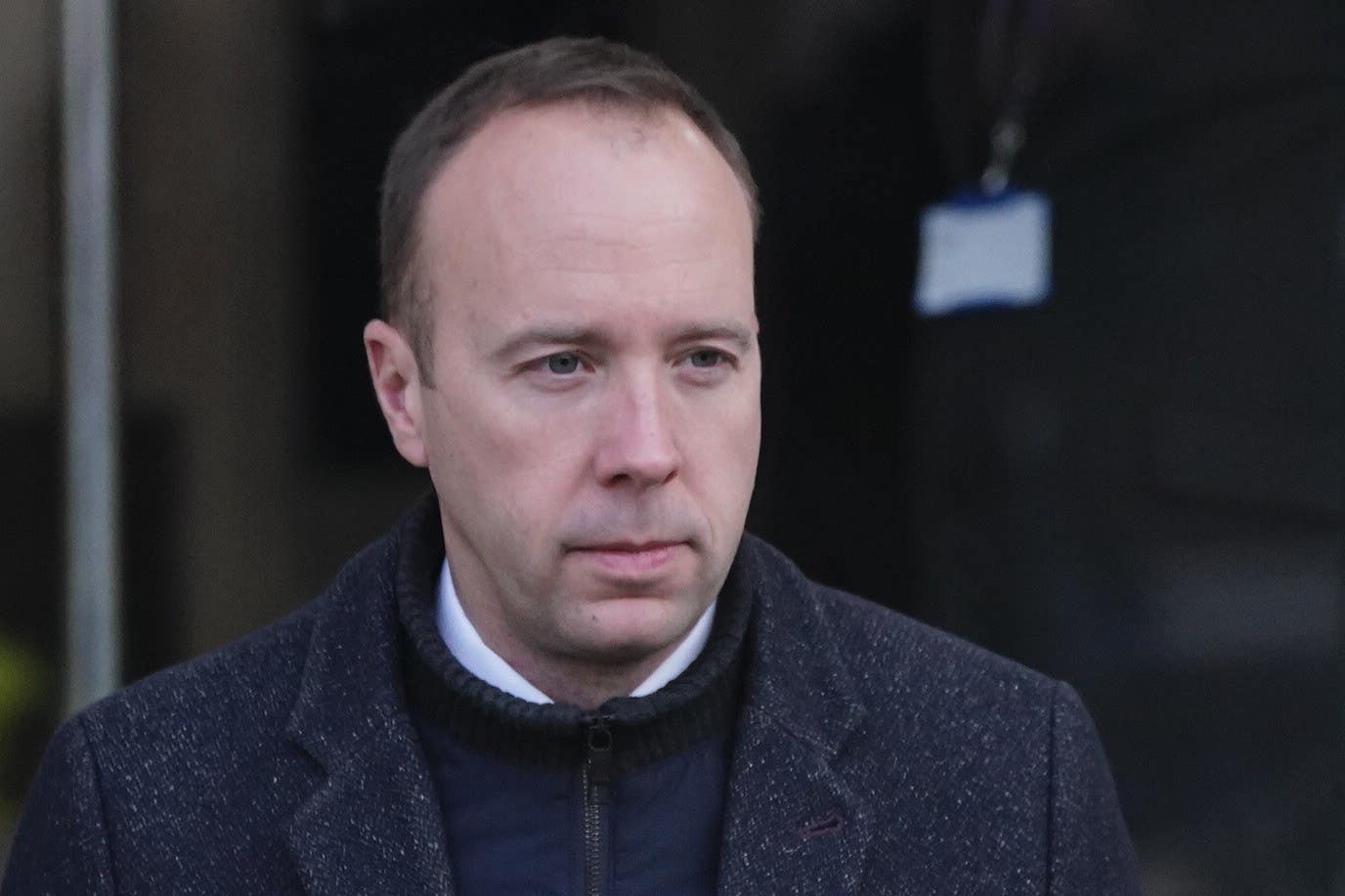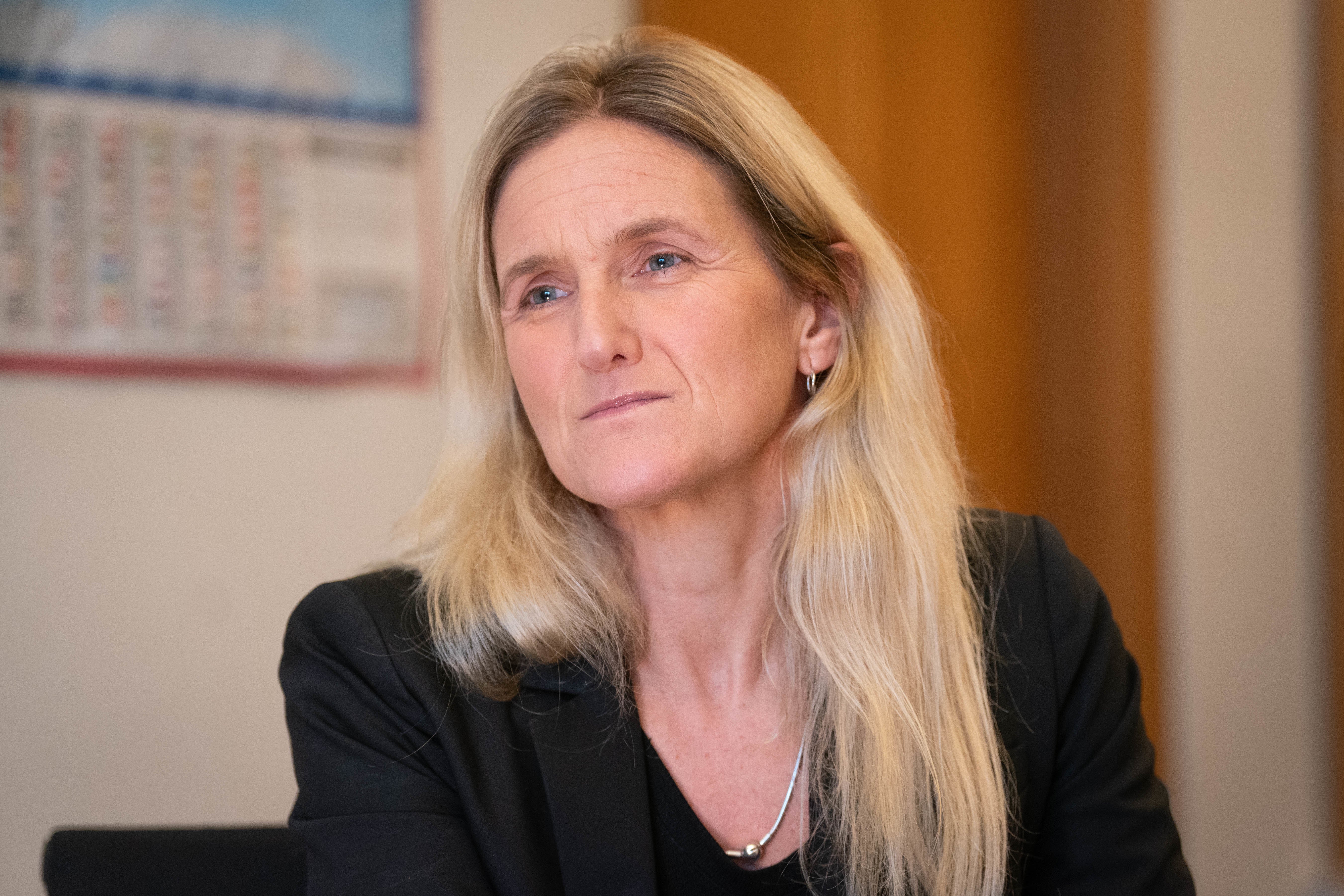Matt Hancock has urged MPs to back Kim Leadbeater’s assisted dying bill, recounting his experience with a constituent suffering from terminal cancer who begged him to change the law.
The former health secretary told The Independent it is time for the law to change, saying it is wrong that some people are “still forced to have very painful deaths”.
“I can remember the moment that I changed my mind and became in favour of assisted dying when I was health secretary”, Mr Hancock said, telling the story of David Minns, one of his Suffolk constituents, who died last year.
Mr Minns nursed his daughter, who was diagnosed with cancer, through a very painful death. Months later, he himself fell ill with a very similar type of cancer.
“He knew what was coming”, Mr Hancock said. “Talking to him and his family was incredibly moving. He knew his death was inevitable and risked being painful, and he begged me to get the law changed and it didn’t change him in time for him. He died last year.”

Mr Hancock also recounted the experience of Paul Cosford, a clinical adviser who worked with the former health secretary.
“He had terminal cancer, and he asked me for a call one day and he said he wasn’t going to last much longer. He’d seen lots of people with his condition and he knew the last couple of weeks were very painful and he wanted to go with dignity.
“In his case, he said it was fine because he could administer himself high doses of morphine. But anyone who isn’t a doctor can’t do that – so they are forced to live out a painful end.”
Opposition campaigners have expressed concerns around possible coercion and vulnerable people feeling pressured to take their own lives, and urged a focus on improving palliative care.
Addressing those concerns, Mr Hancock said he is a strong supporter of palliative care, but believes there is some pain that cannot be mitigated in its entirety.
While he himself previously had some unease about the possibility of coercion, he believes the safeguards in Ms Leadbeater’s bill are strong enough to protect against it.
“The safeguards are very strong. We’ve seen in other countries with strong safeguards like this, the change in the law for many people there is welcome.
“I previously was worried about undue pressure – but it’s well taken into account in this bill.”
But it comes as the chair of Disability Labour has led a cross party effort to persuade MPs not to back the assisted dying bill tomorrow.
Kathy Bole said: “A significant portion of our members express serious concerns about the potential risks and implications of such legislation.
“We are worried that the current proposals may not include sufficient safeguards to protect vulnerable individuals from coercion or undue pressure.
“Furthermore, there is apprehension that the criteria for eligibility could expand over time, as has been observed in other countries, potentially leading to unintended and harmful consequences for people with disabilities.”
Former Tory MP Tom Hunt, who chaired the all party group on special educational needs, added concerns about how people with autism will be affected.
He said: “I’ve become increasingly concerned that neurodivergent individuals, particularly those with autism are especially vulnerable to this bill. There have been tragic cases from other countries involving those with autism.
“If the right support isn’t available neurodivergent people such as myself can often be taken to very dark places and self-doubt and depression can often kick in. It seems very wrong to me that we’re talking about introducing assisted suicide laws with weak safeguards before we’re still so far off being a society that is truly accessible and friendly for those with neurodiversity.”
The legislation would mean the process of assisted dying must involve two independent doctors being satisfied that the person is eligible. A person must be terminally ill and expected to die within six months.
On the eve of the historic vote, the result is on a knife-edge, with backers of the bill believing they have enough support and opponents confident they may be able to block it.
Justice secretary Shabana Mahmood, health secretary Wes Streeting, education secretary Bridget Phillipson and business secretary Jonathan Reynolds have all said they will reject the bill.
But culture secretary Lisa Nandy, work and pensions secretary Liz Kendall, Northern Ireland secretary Hilary Benn, transport secretary Louise Haigh and energy secretary Ed Miliband have all expressed support for the legislation.

Overnight on Wednesday, David Cameron became the first former UK prime minister to give his backing to moves to legalise assisted dying for terminally-ill adults.
Lord Cameron, who was ennobled by Rishi Sunak and served as his foreign secretary, had previously opposed moves to change the law.
But in an article for the Times, he said he had been won over to supporting in the Terminally Ill Adults (End of Life) Bill, set to be debated by MPs on Friday.
Former prime ministers Liz Truss, Boris Johnson, Baroness May and Gordon Brown have all said they are opposed to the Bill.
None of them will have a vote on Friday, but Baroness May and Lord Cameron would if the Bill reached the Lords.
In changing his mind, Lord Cameron said he had considered whether there were sufficient safeguards to protect vulnerable people, and said he believed there were.
Former education secretary Kit Malthouse, one of the Bill’s more prominent advocates, told The Independent that the legislation will “bring order, regulation, supervision and compassion“ to the regulatory landscape for those suffering from terminal illnesses, describing the current situation as a “wild west”.
“It’s worth remembering that behind all of the arguments around the process are real human beings with real experiences. Over the last 10 years, I’ve sat with so many of those people and frankly wept with them.
“I’m not a man easily moved to tears, but I wept with them when I heard what they’ve lived through. And we’re making them do that every single day.”


